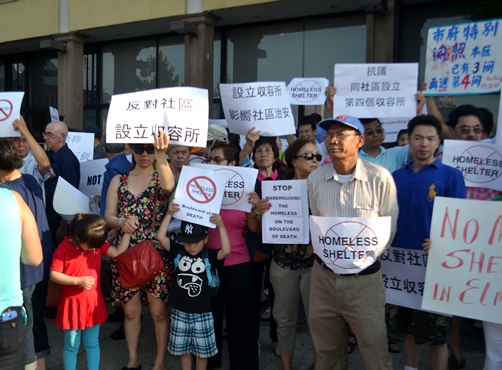Amid ongoing controversy over several Queens homeless shelters, the city comptroller has said the Department of Homeless Services (DHS) is “failing” in the way it deals with homelessness throughout the five boroughs.
In a letter to DHS Commissioner Gilbert Taylor, City Comptroller Scott Stringer addressed the ongoing “homelessness crisis, particularly among families” in New York City. He noted that there are different causes that contribute to the rise, however the “current playbook” in dealing with the issue needs to be changed.
“Especially concerning to my office is the emergency contracting approach that the Department of Homeless Services has employed to site new facilities in neighborhoods with minimal community consultation,” Stringer wrote in the letter on Thursday.
In one case, Glendale residents have been fighting for more than two years to stop an abandoned manufacturing plant from becoming a homeless shelter. The community complained that they were given little to no notice about the shelter.
“DHS must begin to immediately repair its relationships with local communities by creating a robust consultative process with community stakeholders for all of its currently planned sites and for those proposed in the future,” Stringer wrote. “This process should allow for meaningful input from local stakeholders, advocacy groups, and elected officials.”
In the past month, two western Queens neighborhoods have also had to deal with unannounced homeless shelters being moved into two hotels.
Hundreds of protestors spoke against the city’s initiative to house homeless families at the Pan American Hotel on Queens Boulevard in Elmhurst without asking for any input from the community.
Last week, the DHS approved the conversion of the Westway Motor Inn on Astoria Boulevard into a shelter housing over 100 families. Residents and elected officials are outraged the agency let them know about the shelter just a day before the families began moving into it.
“If DHS continues to neglect communities until after emergency contracting decisions have been made it will neither benefit from local knowledge of the area nor engender harmonious integration with the surrounding communities,” Stringer wrote.
RECOMMENDED STORIES
- Community opposes newly approved homeless shelter at East Elmhurst motel
- LIRR strike averted: MTA and unions reach deal
- Howard Beach Waldbaum’s sells winning Cash 4 Life ticket
































